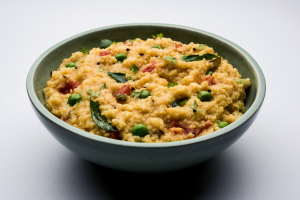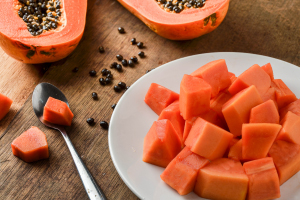

People usually resort to natural treatments or dietary supplements to pursue good health. Quercetin – a flavonoid from fruits, vegetables and supplements — has been considered an agent that may deliver health benefits. Read more about Quercetin, its diverse health advantages, and most importantly, the methods for easy inclusion of it in your everyday meals.
What is Quercetin?
Quercetin is a naturally occurring plant compound belonging to the flavonoid group. It is abundant in plants, such as apples, onions, citrus fruit, berries, cherries, green tea and red wine. This compound is an essential antioxidant that gives some fruits and vegetables bright colours. It provides protection and prevents dangerous ultraviolet rays and other environmental factors from penetrating the skin.
Health Benefits of Quercetin
Here are some of the top Quercetin uses and benefits:
- Antioxidant Properties: Quercetin has been famous due to its high antioxidant properties. It acts as an antioxidant that neutralises dangerous free radicals, minimising oxidative stress and reducing susceptibility to chronic diseases like cancer and cardiovascular diseases.
- Anti-inflammatory Effects: Many health problems are mainly caused by chronic inflammation. Quercetin is an anti-inflammatory remedy for symptomatic management of arthritis and allergies.
- Heart Health: Quercetin promotes a healthy heart by lowering blood pressure, maintaining proper functionality of the blood vessels, as well as aiding in minimising cholesterol levels. Such benefits help in reducing risks of heart diseases.
- Immune System Support: Quercetin is believed to support the immune system, which helps the body resist infections in a better way. It is beneficial, especially during cold and flu seasons.
- Allergy Relief: As it’s a natural antihistamine, taking quercetin may reduce symptoms of allergies like runny nose, sneezing and itchy eyes.
- Skin Health: Owing to the anti-ageing property of quercetin, it acts as an antioxidant for preventing UV damage on the skin, thereby lessening wrinkles. It enhances collagen synthesis and also gives skin its elasticity.
- Cognitive Health: Some studies suggest that quercetin may have neuroprotective properties, potentially reducing the risk of age-related cognitive decline and neurodegenerative diseases like Alzheimer’s.
- Cancer Prevention: Some studies have suggested that quercetin could be anti-carcinogenic, which means it suppresses cancer cell proliferation and induces apoptosis amongst carcinoma cells.
Incorporating Quercetin into Your Diet
Now that we understand the potential quercetin uses and health benefits, let us explore how you can easily incorporate it into your daily life:
- Dietary Sources: Quercetin can be consumed naturally through diet. Add apples, onions, berries, oranges, broccoli, tea and other food items. Consider eating apples, which you can slice and add to your morning oatmeal or try a colourful salad with some combination of vegetables.
- Quercetin Supplements: Opt for quercetin supplements if you do not get enough quercetin through natural foods. They come in different forms, such as capsules, tablets and powders. See your doctor before taking any new supplements.
- Cook with Herbs and Spices: Quercetin is found in numerous herbal remedies like herbs and spices. Try to include some of these ingredients in your cooking, such as capers, dill, cilantro and oregano, since they are rich in flavour and nutrients.
- Quercetin-rich Beverages: Make yourself a cup of green tea or have a bit of red wine for your dose of quercetin. In addition, they offer some necessary antioxidants.
- Smoothies: Prepare smoothie combinations using berries, spinach and kale with a green tea base. This refreshing and nutritious choice might suit your morning breakfast or snack!
- Onion and Garlic: Use lots of onions and garlic when preparing meals. Apart from being tasty, they are very good at providing quercetin.
- Quercetin Supplements for Skin Health: In particular, look at topical quercetin formulations in skincare items, for skin health. Please search for serums or creams with the same component for that extra shield on the skin and for its restoration.
Some common quercetin side effects may leave you feeling nauseous for a while or might give you a tingling sensation in your limbs. So, it is best to consult a doctor before adding quercetin to your routine.
Conclusion
Quercetin, a natural flavonoid present in various food items, offers multiple health benefits, from antioxidant and anti-inflammatory effects to immune system support and improved skin health. By incorporating quercetin-rich foods into your diet or considering supplements when necessary, you can harness the potential benefits of this powerful compound. Boost your overall well-being by adding quercetin to your daily routine.




